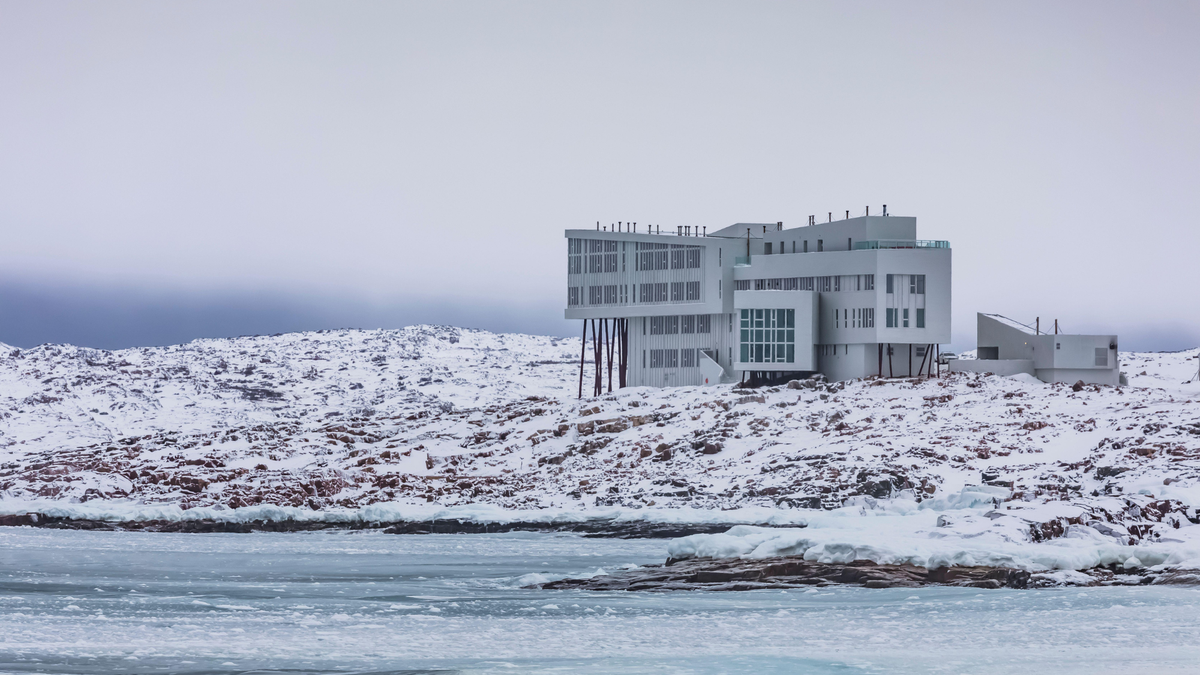In a significant warehouse in Melbourne’s west, a gleaming new machine hums and purrs all over the clock, extruding huge rolls of apparent plastic wrap.
Essential details:
- The plastic wrap can be applied in commercial firms and to wrap foods at property
- People are progressively eager to fork out the quality for bio-packaging
- Compostable espresso cups and oyster trays are also remaining created from sugarcane pulp
It is not the petroleum-centered products so ubiquitous in day to day daily life — from wrapping factory items on pallets to maintaining food clean in the fridge.
This wrap is manufactured from potato starch and polymers, a significant-tech process that utilises potato squander from food products these as french fries and potato chips.
“Typically, it goes to cattle feed or it is really spread out on farmland,” explained Excellent Wrap co-founder Jordy Kay mentioned.
The organization and its products and solutions are the early, eco-friendly shoots of an emerging world-wide industry — the quest to exchange petroleum-dependent plastic merchandise with equivalents made from plant-dependent materials that are just as functional.
But they have to be sustainable, recyclable and, at the conclusion of their life, thoroughly compostable.
Plastics have been mass-generated considering the fact that the finish of World War Two and petroleum-based items are a monolithic global sector, creating a daunting endeavor for Great Wrap.
But in its four decades of existence, the corporation — with the enable of some of the world’s finest researchers — has obtained a toehold in the marketplace with a products in need from businesses determined to cut down their environmental footprint.
Turning squander into wrapping
Jordy Kay was previously an organic winemaker striving to make chemical-no cost wine but was dismayed to then see it packaged on a pallet wrapped in yards of solitary-use plastic.
Julia Kay was an architect intent on employing environmentally-pleasant constructing resources. They also commonly arrived on site wrapped in a similar vogue.
“We realised that if we could type of alter the elements that we’re working with on this one merchandise, we could have a seriously profound effects on plastic squander,” Ms Kay said.
“I imply, it’s the connector of all organization. Everything that we are donning, or is all over us, is on a pallet.”
The couple admits to being idealists, a little naive about the problem, but undaunted by it.
“Julia and I are quite bold people today, really optimistic and in all probability a little bit headstrong, for better or even worse,” Mr Kay stated.
“For us, our intention is to set an end to petroleum plastics.”
Making use of typical information
When Richard Wonderful arrived in Australia from South Africa he was appalled to see plastic waste washed up on shorelines.
Back again home the relatives enterprise had made traditional plastic, so from 2006 he began to implement that understanding into building plant-centered substitution packaging.
His company, Bio-Pak, now generates a assortment of compostable packaging — from coffee cups to oyster trays — designed from renewable sugarcane pulp, which is a by-product or service of the sugar refining sector.
“Shoppers are becoming far more informed of the environmental impacts that their decisions are obtaining, but at the similar time there is a lot of legislation coming into perform which is pushing the needle and, I guess, driving the adoption of far more sustainable supplies, bio-dependent specifically,” Mr Fine said.
Scott Walter, a seafood producer and marketer who helped build the oyster trays, echoed those views.
“As a seafood producer, we are actually incentivised to get away from one-use plastic,” he stated.
“It’s just one of the most significant worries we have in the ocean growing our goods, so the momentum’s there.
“We just want the sort of innovation we’re seeing with bio-pack products and building factors that definitely charm to consumers.”
Individuals keen to shell out
Bio-packaging is much more costly to use, but more and more buyers are willing to spend the high quality.
World-wide action and laws to suppress petroleum plastic pollution is ramping up, from nearby councils all the way to the United Nations.
Substantial manufacturers and consumers of plastic are starting up to be held more accountable.
In a modest lab at Victoria College in Melbourne’s west, Professor Vincent Rouillard and his group have properly built bio-welcoming wraps and packaging from professional vegetable waste.
“We want to use the whole thing. We want to use some natural chemistry to convert this slurry of rotting leaves and shoots into practical packaging supplies like movies, boards, cushions and foams, so which is wherever the challenge is,” Professor Rouillard explained.
He believes that manufacturing bio-wraps along with horticulture, and utilizing them to offer that exact same deliver, could herald a new, definitely sustainable marketplace for Australia.
The founders of Terrific Wrap share that eyesight.
Their big warehouse utilised to house one of Australia’s most significant petroleum-centered plastic makers and the irony has not escaped them.
The couple realise they are boldly blazing a new frontier.
“Companies have manufactured a great deal of claims and they really want to fulfill these [environmental] goals,” Ms Kay mentioned.
“It truly is just that technology like ours does consider time and funds to scale up.”
Check out ABC TV’s Landline at 12:30pm on Sundays or on ABC iview.




